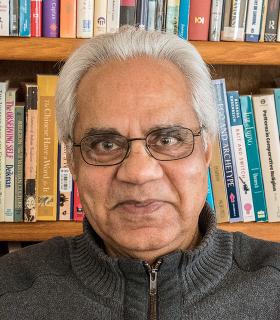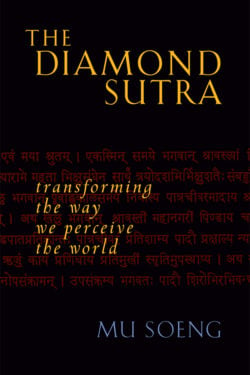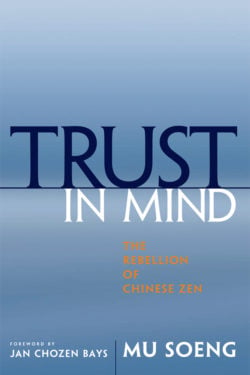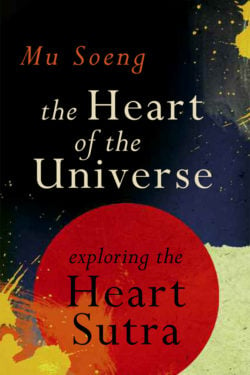Mu Soeng

Mu Soeng, a former Zen monk and teacher, is the scholar-in-residence at the Barre Center for Buddhist Studies. He is the author of many books on Buddhism, including Trust in Mind and The Diamond Sutra. He lives in Barre, Massachusetts.
Books, Courses & Podcasts
The Diamond Sutra
In this brilliant new translation and commentary on The Diamond Sutra—one of the sublime wisdom teachings of Mahayana Buddhism—Mu Soeng integrates this ancient wisdom teaching with current scientific and psychological thought. His clear and readable commentary traces the connections between these teachings and contemporary theories of quantum reality, explores the sutra within the framework of Buddhist meditation practices, and provides a comprehensive historical survey of the Mahayana Buddhist tradition. Mu Soeng’s goal throughout is to reveal the inspiration and wisdom of The Diamond Sutra to today’s reader in an accessible, engaging, and modern manner.
Trust in Mind
“The Great Way is not difficult / for those who have no preferences. / When love and hate are both absent / everything becomes clear and undisguised. / Make the smallest distinction, however / and heaven and earth are set infinitely apart.”
So begins “Trust in Mind,” the beloved poem that has again and again welcomed generations to their practice of Zen Buddhism. Traditionally attributed to the third Chinese ancestor of Zen (Sengcan, d. 606), it is often considered the first historical “Zen” document and remains an anchor of Zen Buddhist practice to this day.
Here, scholar and commentator Mu Soeng explores the poem’s importance and impact in three sections: The Dharma of Trust in Mind, The Tao of Trust in Mind, and The Chan of Trust in Mind. Finally, a brilliant line-by-line commentary brings the elements of this ancient work completely to life for the modern reader.
Trust in Mind is the first book of its kind, looking at this very important Zen text from historical and cultural contexts, as well as from the practitioner’s point of view. It is sure to interest readers of Mu Soeng and his fellow Buddhist contemporaries, as well as those with an interest in meditation and Eastern religions—most especially Zen practitioners, academics, philosophers, and scholars of Mind.
The Heart of the Universe
Form is emptiness; emptiness is form.
This is the bold and intriguing assertion of the Heart Sutra, a text of seminal importance to the Buddhist tradition made even more fascinating by its deep resonance with the cutting edges of quantum physics and cognitive science. In spare and approachable language, The Heart of the Universe deftly explores this gem of world religious literature from a variety of perspectives—historical, spiritual, linguistic, and scientific—each serving to interdependently illuminate the other.



